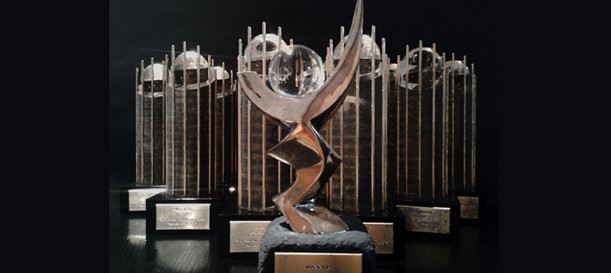A title bristling with insinuation, isn’t it?
Well I’m not going to damn it to hell, but I’ve always had a bit of an issue with the Mercury Music Prize. Or the Barclaycard Mercury Prize, as it now refers to itself. But rather than just blindly slagging it off like usual, I’ve had me a little sit down to think about just what that issue is.
I think it’s made up of three mini-issues. And here I present them unto you.
What, exactly, does the Mercury Prize celebrate?
2015 nominee Roisin Murphy suggests it celebrates the album format. Which is good in a world of attention spans shortened by the availability and accessibility of millions of songs at the touch of a button. I can’t disagree there.
But what I’m getting at is what criteria is the prize awarded on? What criteria is the shortlist generated against? Isn’t comparing a jazz album to a reggae album to a shoegaze album a bit… tricky?
In years gone by, the shortlist always seemed to include a couple of ‘token gesture’ albums. Albums by artists that the wider world had never heard of, from musical genres that didn’t sell particularly well. The attempt to make the award inclusive and bring it validation was so thinly-veiled it was embarrassing. A folk album here, a modern classical album there. Never a heavy metal album though, ever. Who was picking the fringe genres for representation?
That trend (along with the one of ‘shocking the bookies’ by awarding the prize to an underdog) seems to have disappeared. Has the judging criteria changed with it?
If the MP celebrates originality, why were Snow Patrol and Keane nominated little over a decade ago?
If authenticity or deeper meaning are its focus, how come the Spice Girls got a shout in 1996, and M People won the darn thing a couple of years earlier?
Simon Frith, chair of judges, has stated that ‘all genres of music are eligible for entry’, and that the ‘strongest’ albums make the cut, irrespective of genre. What does ‘strongest’ mean, Si?
What are you about, Mercury? Reveal yourself.
So bloody credible
I appreciate that the Mercury’s shortlists draw more attention from music critics than the Brits or the NME awards. Artists featured tend to be more about music than show, and the breadth of genres represented provokes wider interest than perhaps, say, the Metal Hammer Golden Gods might. Also there isn’t the same suspicion with the MP that the whole bloody thing’s rigged.
But it annoys the bejesus out of me when @BBC6Music starts clamouring all over it. The award seems (perhaps in the absence of challengers) to have attained an unquestioned status of reverence and prestige.
Where has this perceived credibility come from? Even the artists seem to be ‘honoured’ and ‘thrilled’ to be involved. Is this just record company pressure as the window of attention ups their record sales?
Judging art don’t seem right
Whether it’s judging a painting against a poem, a sculpture against a film, or an album against an album, judging art doesn’t seem right to me. Art is personal: it’s a personal expression, and it’s born of personal taste. So awarding an over-arching prize to anyone seems odd.
Although the internet seems to have little mention of it, I recall Portishead’s Geoff Barrow saying something in his acceptance speech after winning the 1995 prize to the effect of ‘I’d just like to say that I think judging music’s wrong. But I’ll accept the cheque ‘cos I need a new car.’
Nice one, Geoff.

